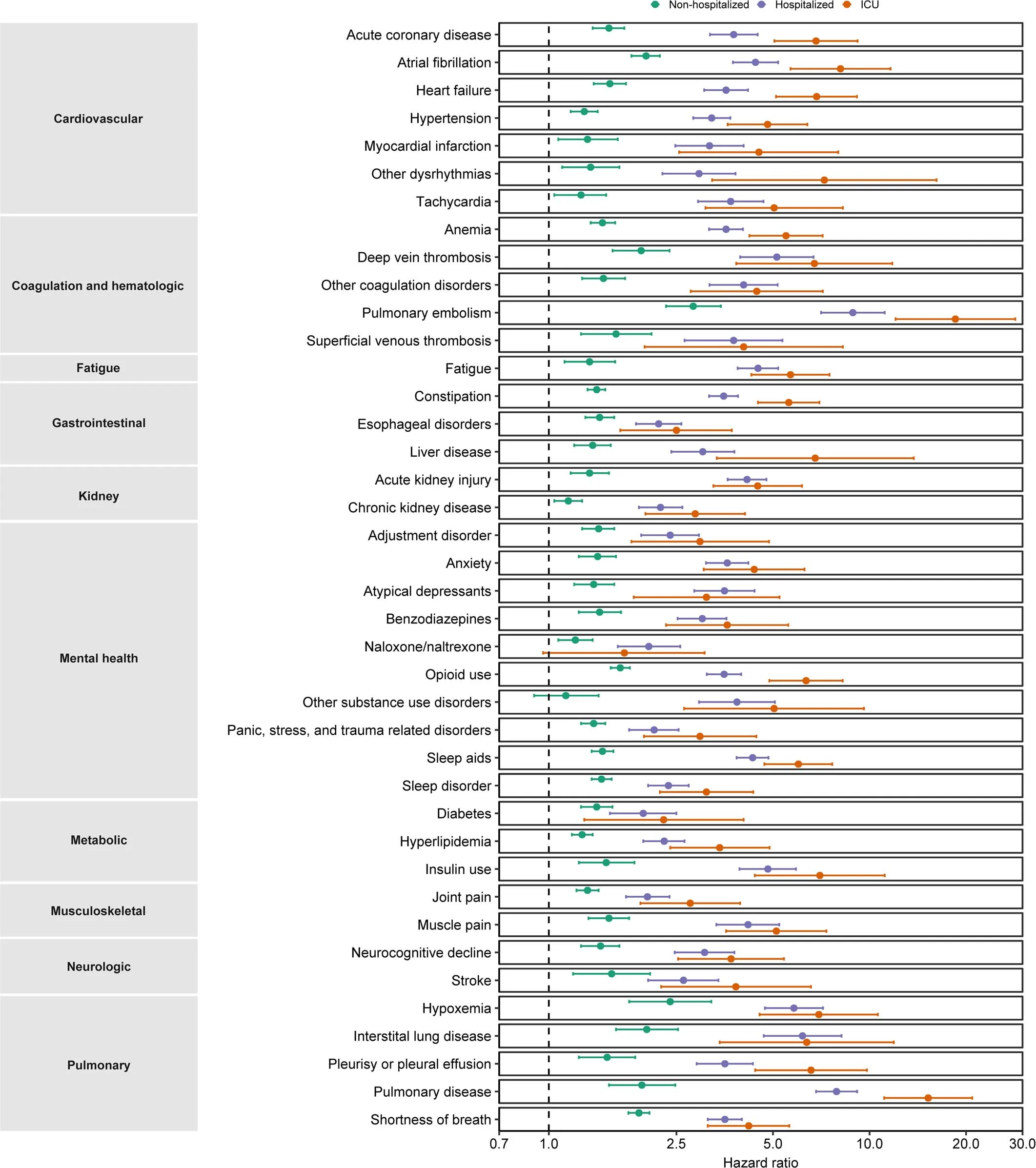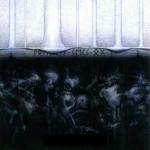'Non-hospitalized COVID-19 "long haulers" continue to experience neurologic symptoms, fatigue, and compromised quality of life 14.8 months after initial infection.
[...]
77% were vaccinated for SARS-CoV-2. Overall, there was no significant change in the frequency of most neurologic symptoms between first and follow-up evaluations, including "brain fog" (81 vs. 71%), numbness/tingling (69 vs. 65%), headache (67 vs. 54%), dizziness (50 vs. 54%), blurred vision (34 vs. 44%), tinnitus (33 vs. 42%), and fatigue (87 vs. 81%). However, dysgeusia and anosmia decreased overall (63 vs. 27%, 58 vs. 21%, both p < 0.001). Conversely, heart rate and blood pressure variation (35 vs. 56%, p = 0.01) and gastrointestinal symptoms (27 vs. 48%, p = 0.04) increased at follow-up. Patients reported improvements in their recovery, cognitive function, and fatigue, but quality of life measures remained lower than the US normative population (p < 0.001). SARS-CoV-2 vaccination did not have a positive or detrimental impact on cognitive function or fatigue.'
Evolution of neurologic symptoms in non-hospitalized COVID-19 "long haulers" - PubMed (nih.gov)
These long covid studies should really do more to measure severity, not just frequency. It's alarming that the frequency of neurological symptoms doesn't significantly decrease (for those with bad enough cases to go to a long covid clinic---and it's worth bearing in that that study was relatively small), but slightly reassuring that patients report self-perceived improvements in cognitive function and fatigue (by how much though? what do more objective measures indicate?).
'new research shows that an omicron infection is a poor substitute for a vaccine. In a study published last week in the journal Nature, researchers looked at immune responses in mice and humans after infection with different variants. They found that an omicron infection provided little shielding against other versions of the virus.
"Omicron by itself sweeping through the world is not going to induce a very robust immune status protective against other variants in the future if you are not vaccinated," [...]
As for BA.2.12.1, BA.4, and BA.5, these new subvariants appear to dodge some of the immunity generated by BA.1 and BA.2.
[...] That will likely fuel more Covid-19 cases throughout the summer.
[...]
"Even slight changes to omicron in these new variants seem to be sufficient to actually circumvent this neutralizing activity,"'
B.A.2.12.1, BA.4, and BA.5: Meet the new omicron subvariants - Vox
So the new subvariants do evade immunity provided by BA.2, implying new waves may be imminent in the UK and much of Europe? But it's not clear yet whether BA.2.12.1, BA.4, and BA.5 provide post-infection immunity against each other?... US BA.2.12.1 wave could be followed by BA.4, then BA.5 (or vice versa)?...
 Malankazooie, on 22 May 2022 - 04:13 PM, said:
Malankazooie, on 22 May 2022 - 04:13 PM, said:
 Help
Help



















